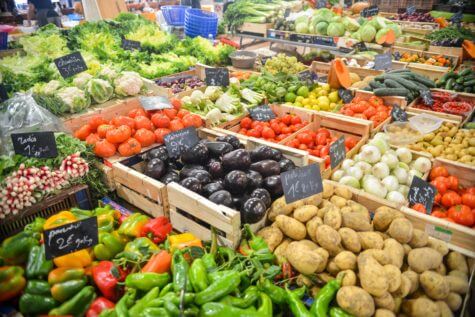LOS ANGELES — Eating plenty of fruits and vegetables is a well-known key to enjoying a healthy, balanced diet that can lower one’s risk of cardiovascular disease and other ailments. Now new research finds that they can play a major role in fighting against high blood pressure.
The report shows that a diet rich with foods containing high levels of potassium may be paramount to decreasing one’s blood pressure. High amounts of potassium are commonly found in fruits, vegetables, beans and even coffee.

The research was conducted at the Keck School of Medicine of the University of Southern California.
Alicia McDonough, PhD, cell and neurobiology professor led the research. Her work analyzes how dietary sodium and potassium levels correlate with blood pressure. She emphasizes that we should remember to include sufficient amounts of potassium in our diets.
“When dietary potassium is high, kidneys excrete more salt and water, which increases potassium excretion. Eating a high potassium diet is like taking a diuretic,” McDonough explains in a university press release.
McDonough reviewed a compilation of population studies as well as interventional and molecular mechanism studies to show that high-potassium diets were linked to lower blood pressure. These results were found to be true, no matter the dietary sodium levels.
“Decreasing sodium intake is a well-established way to lower blood pressure,” says McDonough. “But evidence suggests that increasing dietary potassium may have an equally important effect on hypertension.”
She acknowledges that we get high amounts of sodium regularly. We see this in foods like canned food and fast food.
“If you eat a typical Western diet, your sodium intake is high and your potassium intake is low. This significantly increases your chances of developing high blood pressure,” she says. “When dietary potassium is low, the balancing act uses sodium retention to hold onto the limited potassium, which is like eating a higher sodium diet.”
McDonough’s review was published in the April issue of The American Journal of Physiology – Endocrinology and Metabolism.

Potassium is necessary for heart health. High levels can be as dangerous as low levels.
http://www.webmd.com/a-to-z-guides/hyperkalemia-causes-symptoms-treatments#1